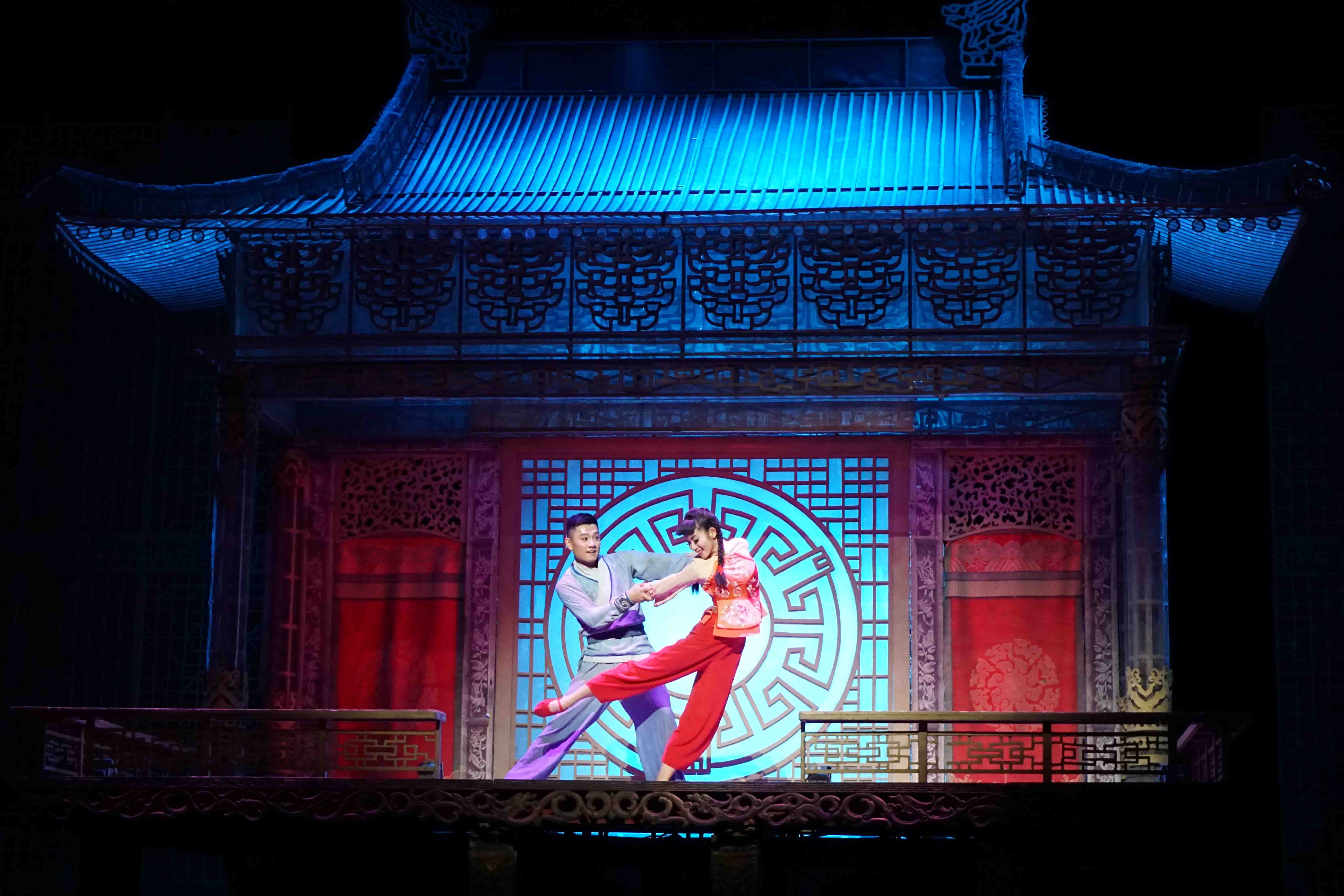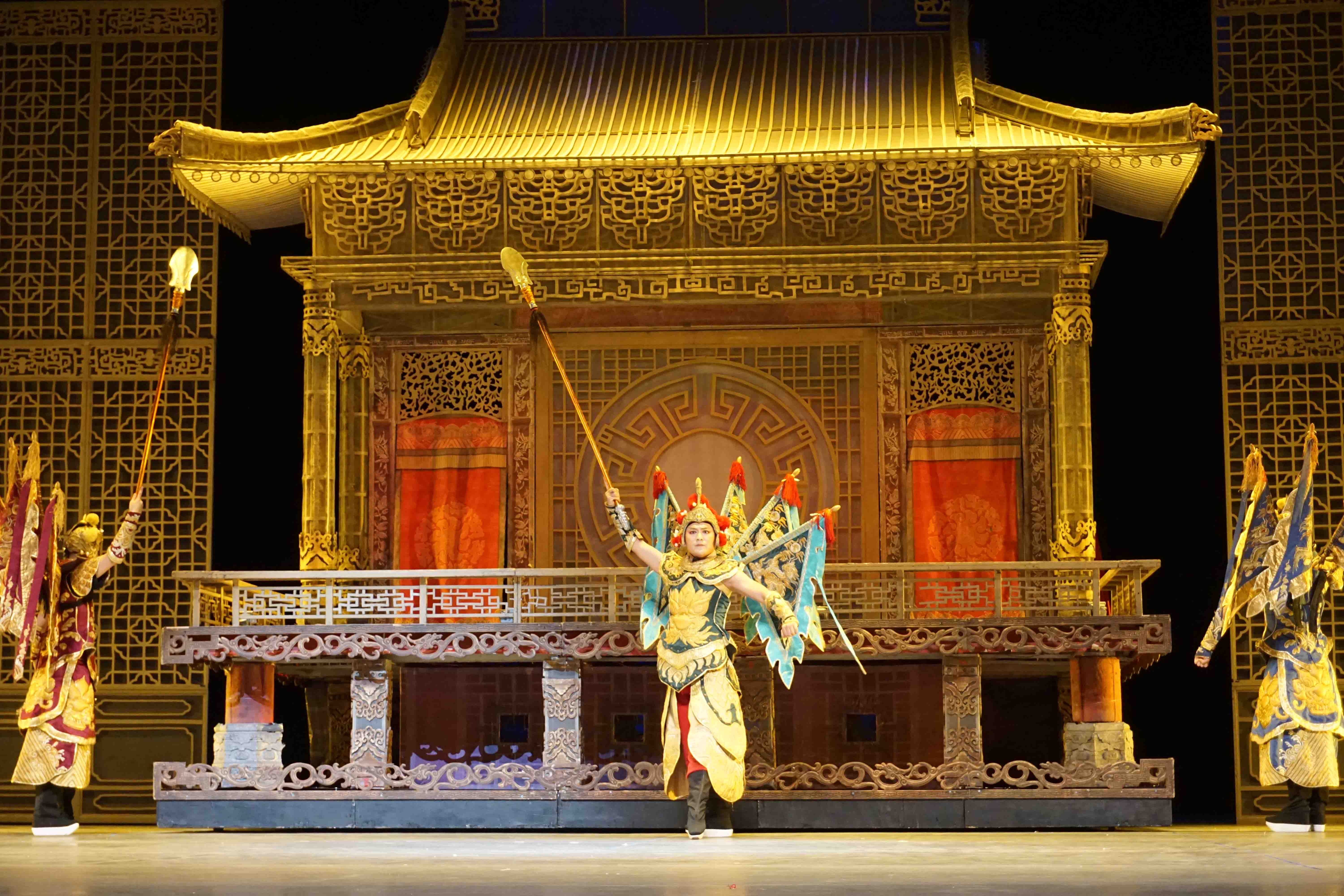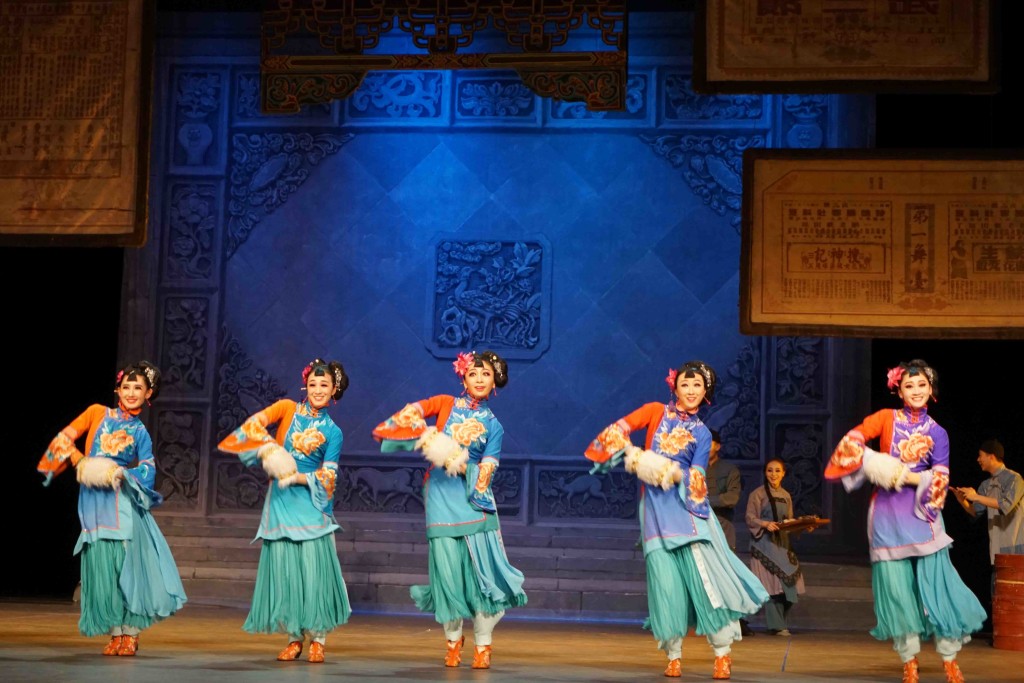
Lu Jianfei as The Youngest Brother, ‘Heidou’, and Yang Xuan as Yan’Er in a duet.
Queen Elizabeth Theater, Vancouver – January 5th, 2016
Performed by the Huajin Dance Drama Ensemble of the Shanxi Academy of Arts.
Presented by the China Arts and Entertainment Group.
Opera Warriors is an entertaining show with a big budget gloss that doesn’t disappoint. It comes from the creative team behind the 2008 Beijing Olympics Opening Ceremony, and its credits include choreographer Xing Simiao and Hong Kong playwright Pik Wah Li, who wrote the screenplay for the film Farewell My Concubine, winner of the Gold Palm award at Cannes. Combining elements of Chinese dance, ballet and contemporary dance, and theatre, it tells a story about a Beijing opera company in northern China in the early 20th century. First-timers to Chinese theater need not worry if they don’t know the genre – the show has no vocals or dialogue, and the program provides the synopsis, in English and Chinese, in guidebook fashion. The same text is also shown on small screens on either side of the stage before each act. Further, dramatic acting by the forty performers, all from the Huajin Dance Drama Ensemble, leave no doubt of the emotions and intentions of each of their characters.
The story follows three brothers in an Beijing opera academy who go on to perform in a theatre troupe. The drama entangles two love stories, a tragedy and a revelation that finishes the show on a jubilant note. Elements of traditional Chinese stories are expressed through its familiar characters, with some contemporary twists that at times are inventive and added more depth, and at other times seem out of place.

Xie Haibo as The Eldest Brother with performers of the Huajin Dance Drama Ensemble.
The performance is at its best and liveliest when portraying scenes and characters of the Beijing Opera and traditional Chinese theater, including – women who dance in robes with long sleeves, warrior men with elaborate flags mounted on their backs, men dressed as women (customary to this role) balancing in short, wooden stilt-shoes on the armrests of a chair, and excerpts from The Monkey King and famous Beijing operas Battle at Four Gates and Visiting the Mountain. High energy acrobatics and martial arts are incorporated throughout the performance.
Intricately designed costumes (by Wang Qiuping) make each scene visually stunning. Likewise, the set (designed by Gao Guangjian) kept to traditional architectural designs and was centered around a pavilion, with its typical gabled, double-eave roof, that served as the background as well as the stage where story’s theater company performs. The scenes were lit to dramatic, technicolour effect, designed by Sha Xiaolan.

Performers of the Huajin Dance Drama Ensemble.
The plot is kept fairly brief, perhaps in the interest of staying within jovial entertainment and an approximately two hour length. This meant glazing over some of the issues specific to Chinese culture that a traditional plot would explore. It is unlikely that the theater troupe’s director would’ve allowed his only daughter, Yan-Er (played by Yang Xuan) to marry The Youngest Brother, named Heidou (meaning ‘black bean’), played by Lu Jianfei, who’s rambling character is the least accomplished of the three brothers. A traditional plot would’ve shown the father’s disapproval, and the daughter might have been disowned in such rebellion against him.
The love stories between Yan-Er and Heidou, and The Third Concubine (played by Du Yuejiao) and The Second Brother (Ren Zhongjie), were richly expressed in contemporary dance and ballet styled duets. They tangled and unraveled in dances demanding acrobatic strength and balletic softness and that expressed playfulness and passion, adding intimacy to the relationship that traditional Chinese dance does not normally express.
However, contemporary influence in staging did not work so well in a scene in the third act. The Second Brother, desperately fleeing after a gun battle, is staged with him running stationary while four fortress doors move around him to depict, likely, the buildings he passes. The effect recalls outdated video games where the background scrolls to show a character’s displacement.
Artists in China’s contemporary dance-theatre genre have been keenly embracing influences beyond Chinese traditional art forms. Opera Warriors shows this pioneering spirit in honing a new, contemporary voice that will still need time to perfect. Meanwhile, it has gathered prominent talent to the genre and creates interest in the stories that inspire it.

Ren Zhongjie as The Second Brother.










No Comment